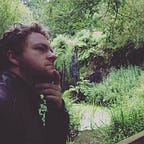The Antiquity of Nations
Though perhaps not as hotly debated as it should be, age one of the most common topics raised in discussions on nations. Though the age of individual nations is rather easy to observe (most originate at some point in the 19th century), the age of the nation itself is not. Most of the important scholars on the subject (such as Benedict Anderson, Ernest Gellner, Elie Kedourie, Anthony Smith, and Eric Hobsbawm) are of the mindset that the nation is a modern invention that originated in the 18th century (usually citing the French Revolution as the birth of the nation, though Anderson argues it was instead Latin American decolonization that acted as midwife — regardless, the timeframe is relatively the same). This viewpoint therefore holds that the nation represents a rupture in human history, a fundamental change in how people thought about and organized themselves. This modernist hypothesis has undoubtedly become the dominant narrative on discussions regarding nations and nationalism and it is not treated with the suspicion it ought to be. I want to therefore spend a bit of time discussing why we should be more critical of this perception of the nation and what better ways exist to look at the nation.
The word nation is itself not a new word. It can be found deep in the medieval period, though it is rarely used to refer to something as important as the modern nation. Instead it was used to refer to something more akin to ethnicity, particularly in reference to the ancestry of the aristocratic classes. This is why we see references to the English or French nation in relation to knights, peerage, and royal courts. The distinction here is that the underclasses were often cut off from these associations, thereby meaning that the larger state or broader ethnic group had little meaning to an individual peasant or burgher. This is why the revolutions of the 18th and 19th century appear to be so dramatic: the third estate asserts itself for the first time on the national stage, and in so doing takes possession of it. The scholars I mentioned earlier describe this as part of the modernizing process: as the state penetrated deeper into the lives of all its citizens (through education, taxation, military service, suffrage, etc.), those citizens develop an awareness of their relation to the state and the other citizens of that state that encourages them to think nationally (this narrative usually also holds that other groups began to follow suit, viewing their large communities as national despite not possessing a state and therefore agitating for a state in the 19th and 20th centuries). The issue with this thinking, however, is it holds that the third estate was not thinking in collective terms at all before. This idea, of silent subjects, seems hard to swallow.
So how did the peasants and burghers think of themselves if not in national terms? Perhaps it would be best to first reflect on how these people lived. It is a relatively well known fact that during the medieval period, and indeed in those eras preceding it, people did not tend to travel much. A peasant born in a particular place was likely to die relatively close to that same place. Therefore, their whole world was likely to consist of little more than the farmland where they and their neighbors lived and worked as well as the village which they would commute to for commercial and religious services. This is part of the reason why there exist so many different and unique linguistic dialects and regionally specific cultures: people lived relatively insular lives. People seemed to view themselves in these terms as well: the city, village, or small area (say, a particular valley) tended to be how ordinary people defined themselves. In this sense, therefore, people were not really lacking in a collective identity at all. Moreover, these collective identities were often national in appearance, since they carried all the markers of the nation: language, culture, territory, etc. In this light, medieval states like England and France are not national at all, but rather are extremely diverse constructs bound together by the military, political, and social force of their elites. It is instead the much smaller political and social entities that common people interacted with daily that formed their national identities. This is hardly surprising, however, as we are all familiar with examples of ancient communities that seem to approximate nations: the city-states of Classical Greece, for example. Scholars often come up with contrived reasons why these do not count as nations (David Cannadine disqualifies Classical Greece because of the lack of political unity, as though that some how matters; while Hobsbawm and Smith give these entities names like pseudo-nations as they acknowledge that they resemble nations despite existing earlier than the 18th century), but the fact is that these are national units themselves.
The modern period, therefore, does not so much represent a rupture as it does a transformation. It is undeniable that modern nations are fundamentally different, particularly in size, to older nations. The modernizing processes described above led to the development of larger and more cohesive nations, as languages and cultures were standardized throughout large swathes of territory and the alienation promoted by larger states and societies necessitated stronger tools for group identification. These were not however brand new entities, but rather modernized forms of older national entities. This also helps us understand why nations formed using pre-existing material, such as language; material that almost certainly helped to inform older national identities.
This has been a rather brief discussion, and much is left unsaid. However, the point of this discussion is merely to act as an opening salvo in an attempt to renew the debate on this subject. Nations, or rather national thought, is older than is given credit for an I hope that I have made my case convincingly with these short remarks.
